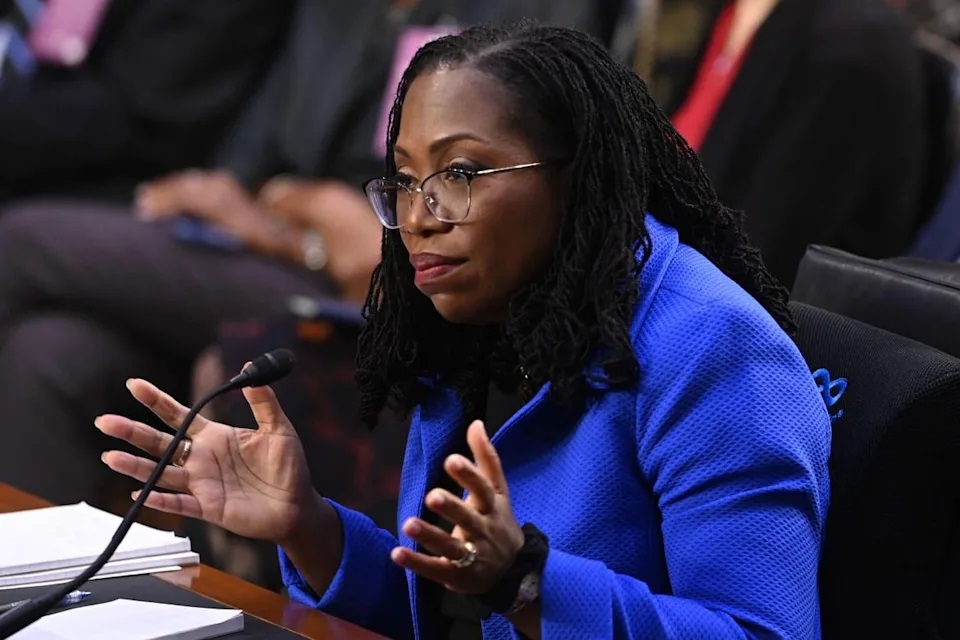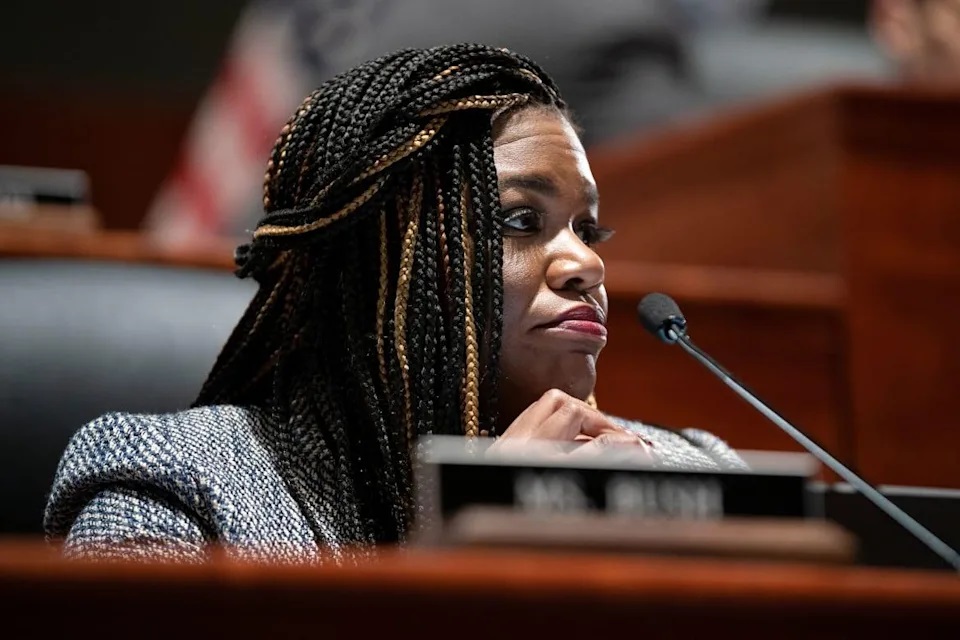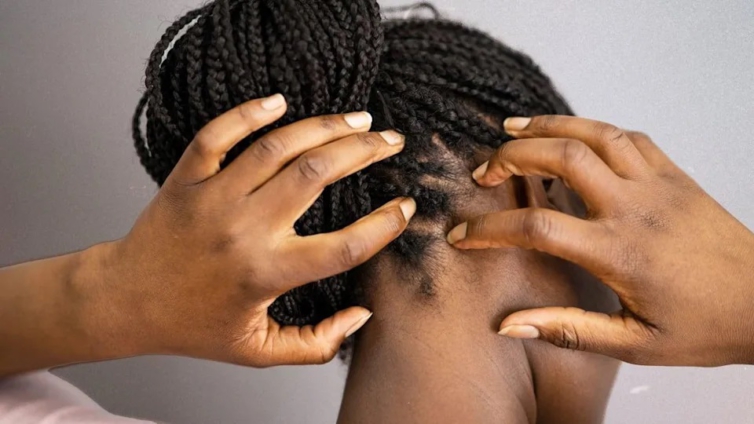For decades, hair has affected how Black women deal with the workplace and corporate America.
Indeed, the issue of hair has been deeply personal, political, and economic for Black women throughout the history of the United States.
Hair discrimination is very common, with many Black women reporting stories of being discriminated against for their natural afros, braids, Bantu knots, and locs.
A 2019 Dove study confirmed that Black women report being 30 percent more likely to receive a formal grooming policy in the workplace, at both the application and orientation phase.
Black Artists Make Fashion a Profitable New Canvas. But Is Their Work Being Exploited?
Thankfully, Congress has taken legislative action to try and improve things. On March 18, the U.S. House of Representatives passed the CROWN Act.
The acronym for the legislation stands for “Creating a Respectful and Open World for Natural Hair,” with the main provisions of the bill centered on banning hair discrimination in employment, housing programs, and public access accommodations.
The act was sponsored in the House by New Jersey Congresswoman, Democrat Bonnie Watson Coleman, and passed with a vote of 235-189 along party lines.
Congresswoman Coleman’s office did not immediately respond to The Daily Beast’s request for comment.

This week, confirmation hearings began for Ketanji Brown Jackson to the Supreme Court. News outlets began pointing attention to something outside of her judicial record: her hair.
Not only is Jackson the first Black woman to be nominated to the Supreme Court, but she is also the first to belong to the natural hair community.
For the first time, many Black people saw someone who looked like them standing before the Senate with the potential to be confirmed to the highest court in the land. It is truly revolutionary.
Samantha Scarlette, a New York City real estate agent, said, “This is a reminder that most women in serious professional jobs or collegiate settings don’t have a whole lot of free time and prep time because they are busy women. Getting your hair looking up to white standards of beauty takes a lot of time every day. I used to spend an hour trying to maintain my hair before I began spending thousands of dollars on Japanese straightening treatments. With braids and locs, it’s much easier to get up and go. It makes more sense for professional Black women to have one of these natural hairstyles for convenience.”
While many are happy that this act is helping to make progress for Black female professionals, some don’t see it as going far enough.
Zoey Bombschell, a PR strategist and image consultant said, “I have mixed feelings about the CROWN Act because Black hair isn’t only attacked in the board room but starting in the classroom. From my entire childhood to college, if I was ever in a majority white setting, if my hair wasn’t an ‘appropriate’ hairstyle, I would be subject to ridiculous or inappropriate comments and questions by classmates, teachers, and administration. From the time Black women get into corporate settings, they have already been traumatized by our experiences in the school system.”
While she does agree that this act is a great first step, she added, “If someone has been conditioned to wear their hair in a more Eurocentric style to appeal and blend in for majority-white settings, how is one supposed to feel comfortable once it is no longer forced or implied?”
Bombschell’s views were echoed by Congresswoman Cori Bush (D-MO 1st District). In a statement e-mailed to The Daily Beast, Bush said, “I know what it’s like to sit in that waiting room, to sit in that office, and know that the person on the other side of the table is judging me for the way I chose to wear my hair. Discrimination of Black hair has had catastrophic impacts on our society. Since this country’s founding, we have conditioned Black women and girls that their hair must be straightened or altered for them to be treated fairly and with respect. No more. Today we honor and celebrate our hair in all its beauty. I’m humbled and honored to join Congresswoman Watson Coleman in this historic effort to ensure equitable access and treatment for everyone in America.”

Scarlett Rocourt, the founder of hair product company Wondercurl, founded her brand intending to help Black women love and appreciate their hair the way it naturally grows out of their head. Rocourt’s journey with her natural hair began in college when she read an article on natural hair in Essence magazine. Before that, from age 13 to her senior year of college, she had been relaxing her hair.
“Once I started going natural, I learned my authentic self through that journey,” Rocourt said. “I got a lot of pushback from my family at first. They wanted to know how I could get a job with my hair natural. I was lucky because the fields I worked in were either fashion or start-up tech companies, and people were very liberal and open-minded about my natural hair.”
Rocourt started Wondercurl because she couldn’t find a hair gel product that was good for thick natural hair to keep it frizz-free without making her hair hard and stiff. While she has been a big supporter of legislation to end hair discrimination, she believes a federal CROWN Act is only the start.
“This is just the beginning,” she said. “It’s kind of sad that we need to have a law that says you can’t discriminate against hair, but we can take it a step further to eliminate all workplace discrimination. Hair discrimination equals racial discrimination, and we need to dismantle all forms of that.
This is just a step in the right direction, especially after seeing how many of our rights are being chipped away at, like voting rights, which disproportionately affect Black and brown communities.
“The way we wear our hair shouldn’t be an issue. Companies are dictating how we can and can’t wear her hair, and it’s ridiculous. The way I way my hair doesn’t affect my ability to do my job or my productivity.”
The CROWN Act’s biggest proponents, aside from its sponsors and allies in the House and Senate, is the CROWN Coalition, a group of businesses and organizations that include Dove, National Urban League, Color of Change, and Western Center on Law & Poverty.
The original CROWN act movement was created by a team of Black women leaders who started their quest to end hair discrimination state by state. Before the passage of Congresswoman Coleman’s act, the coalition helped push for state by state CROWN Acts, with 14 states currently having their own CROWN Acts on the book or legislation filed for a vote.
The CROWN Act is currently making its way through the Senate where it is sponsored by Senator Cory Booker (D-N.J.) It has the support of the White House, and the CROWN Coalition is working on engaging people on social media and through campaigns to contact their senators to help pass the act. (Senator Booker’s office didn’t immediately respond to The Daily Beast’s request for comment.)
Joi Chaney, senior vice president for policy and executive director of National Urban League’s Washington Bureau, has seen how necessary this legislation has been for quite some time. Before her time at the National Urban League, she worked in the Office of Equal Opportunity under the Obama Administration. During that time, she saw cases come before the office involving hair discrimination.
“If you’re discriminating against someone for their hair, that is racial discrimination,” Chaney said. “The CROWN codifies the common sense understanding that is race discrimination. To say that someone can’t wear a hairstyle that is associated with a certain racial group is a form of discrimination that we need protection against. As an African American woman, I know how it feels to have people comment on your hair. Hair discrimination for Black people is a relic of an era that we need to be on the other side of.”
While Chaney might have natural hair herself and is a tireless advocate to end hair discrimination, she also says she doesn’t consider herself part of a movement because, “This is simply me wearing my hair the way I want to. I know not everyone gets to do that with ease, which is why I do the work I do. I have a friend who is a law professor and wore her natural hair to class one day, and she was met with feedback that her afro was distracting. It’s time we move past this vestige of a bygone era and take another step in ending racism.”
While the idea that someone could shamelessly push back against ending hair discrimination might seem absurd, many companies didn’t exactly recommend ending hair discrimination with open arms.
Jade Magnus Ogunnaike, senior director of media, culture, and economic justice at Color of Change joined the organization in 2016. Her initial work to ending hair discrimination began with schools where she found kids were punished for wearing locs or natural hair.
She then began pushing massive corporations including McDonald’s, Walmart, and Publix to enact human resource policies prohibiting hair discrimination.
However, what she found with some of these large corporations is that they were missing the mark or treated it like it wasn’t a problem.
“Many big companies when presented with the issue of hair discrimination said things like ‘we already have policies against race-based discrimination,’ proving that people may not connect their visceral reactions to Black women with natural hair to racism,” Ogunnaike said. “The second thing we found was that with companies that ran franchises, they said that it was up to the franchise owners to decide on hair policies like corporations couldn’t mandate policies nationally. These companies, like Walmart and McDonald’s, want to advertise to Black consumers but won’t create protections for Black employees.”
In her role at the Color of Change, Ogunnaike also works to help fight for media representation in television and movies for characters who have natural hair. She believes that once natural Black hair is no longer treated as strange or weird, true progress will be made, and so much of that can start with media representation.
She added, “Black women have spent millions of dollars and time over centuries trying to conceal our natural hair, giving into anti-Black agencies. It’s an extension of misogynoir, a specific form of sexism and patriarchy directed toward Black women, so Black women can feel less than for their hair. I’ve always worn my natural hair, and as a Black mother, I don’t want to see my daughter penalized for wearing her hair naturally.”
Latest Stories
-
World Safety Day: Zoomlion addresses the impact of climate change on occupational safety
6 mins -
We’ve saved $57.9m from procurement of BVDs, BVRs – EC insists
13 mins -
Catholics hail Bawumia for religious diversity after visit to Pope Francis
19 mins -
We’ll address all internal issues before December polls – Stephen Ntim assures NPP
22 mins -
NPA boss re-elected as President of African Refiners and Distributors Association
35 mins -
Today’s front pages: Monday, April 29, 2024
44 mins -
Ejisu by-election: I’m not an NDC member; address internal issues bothering your members – Aduomi to NPP
47 mins -
‘We have missed him for months’ – Arteta on Thomas Partey
1 hour -
Togo heads to polls amid tensions over law reform
1 hour -
Nigerians excited over Harry and Meghan’s planned visit
1 hour -
‘We are sorry but we need to stay calm’ – Andre Ayew on Black Stars recent form
1 hour -
Election 2024: Bawumia dares Mahama to two-man debate
2 hours -
Bawumia is a man of integrity and discipline unlike Mahama – Miracles Aboagye
2 hours -
Ejisu by-election: NDC is sponsoring Aduomi; don’t vote for him – Bawumia to NPP supporters
2 hours -
Freedom of speech must engender development
2 hours

